The Bible & Political Philosophy
Explore the political teaching of the Book of Genesis.
Summer 2010
Washington, DC
This seminar looks at politics from the perspective of what is, at first glance, not politics, both from beneath politics (the household or family) and from beyond it (the divine). We contend that these perspectives have much to contribute to politics: they not only illuminate politics by shining light from across its borders; they may also inform politics rightly considered.
We can distinguish three different senses of “limits” of politics: (a) Limits in the sense of “boundaries” and “limitations”: What are the boundaries of the political domain? What are the limitations of its authority? Does it hold sway, e.g., over birth and death, private life (the household, thought), or the divine? (b) Limits in the sense of “sources” and “standards”: What are the sources of political authority and legitimacy? What are the standards for its teachings and pronouncements? Do these come, for example, from nature, from human reason, or from God or gods? (c) Limits in the sense of “goals”: What is the purpose or aim of politics? As war is for the sake of peace, what is politics for: (i) Something beneath politics? (ii) Something beyond politics? (iii) For its own sake—e.g., for the sake of self-governance? More concretely: Is the purpose of politics the securing of individual rights and the safeguarding of private liberty? The promotion of virtue or the perfection of our humanity? Service to the divine, in part through the sanctification of human life and community? We submit that a proper understanding of politics will require attention to all three senses of limits: limitations of political authority, standards for judging political ways and teachings, goals toward which politics point.
To make things complicated and interesting, we will offer two perspectives on these matters, one from Greek tragedy, one from the (Hebrew) Bible. Both look at the city in relation to what is not the city. Yet they offer different views of man’s relation to nature and the divine, and profoundly different views of the divine’s relation to the human. They therefore point to different answers to our questions about limits. For the most part, we will come at these matters indirectly, concentrating instead on the texts themselves, read carefully for their own meaning. But we hope to show that a deeper understanding of politics—including American politics—requires thinking hard about the matters we will be examining this week.
Images: Moselli, Promulgation of the Written Law through Moses, fresco, 1480 | Henry Fuseli, Oedipus Cursing His Son, Polynices, oil on canvas, 1786
Leon Kass on the Bible & political philosophy
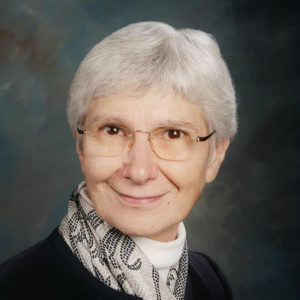
Amy Apfel Kass (1940 – 2015) was a senior fellow at the Hudson Institute, Senior Lecturer Emerita in the humanities at the University of Chicago, and coeditor of What So Proudly We Hail: The American Soul in Story, Speech, and Song. She was an award-winning teacher of classic texts.

Amy Apfel Kass (1940 – 2015) was a senior fellow at the Hudson Institute, Senior Lecturer Emerita in the humanities at the University of Chicago, and coeditor of What So Proudly We Hail: The American Soul in Story, Speech, and Song (Intercollegiate Studies Institute, 2011). She was an award-winning teacher of classic texts.
Ms. Kass was the founding director of the nationwide Tocqueville Seminars on Civic Leadership, and, more recently, the nationwide Dialogues on Civic Philanthropy. She served on the National Council on the Humanities for the National Endowment for the Humanities, and as a consultant to the Corporation for Public Broadcasting and the Corporation for National and Community Service. Ms. Kass was an adviser to Civic Enterprises and the National Conference on Citizenship and a member of the board of the Ethics and Public Policy Center.
She was the author of numerous articles and editor of the anthologies American Lives: Cultural Differences, Individual Distinction (Golden Owl, 1995), The Perfect Gift: The Philanthropic Imagination in Poetry and Prose (Indiana University Press, 2002), and Giving Well, Doing Good: Readings for Thoughtful Philanthropists (Indiana University Press, 2007). With her husband, she produced two or more anthologies, one on courting and marrying (Wing to Wing, Oar to Oar), and one on American national identity and civic attachment (What So Proudly We Hail), as well as a series of e-books on The American Calendar, one for each of ten national holidays.
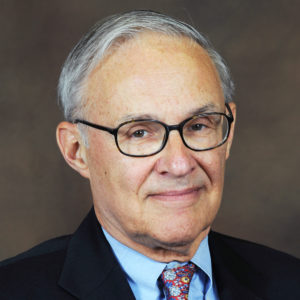
Leon R. Kass, M.D., is the Addie Clark Harding Professor Emeritus in the Committee on Social Thought and the College at the University of Chicago and the Madden-Jewett Chair at AEI. He was the chairman of the President’s Council on Bioethics from 2001 to 2005. He has been engaged for more than 40 years with ethical and philosophical issues raised by biomedical advances and, more recently, with broader moral and cultural issues.

Leon R. Kass is Dean of the Faculty at Shalem College, Professor Emeritus in the Committee on Social Thought at the University of Chicago, and Scholar Emeritus at the American Enterprise Institute in Washington, DC. He was the chairman of the President’s Council on Bioethics from 2001 to 2005.
Originally trained in medicine and biochemistry, he shifted directions from doing science to thinking about its human meaning, and he has been engaged for forty years with ethical and philosophical issues raised by biomedical advancements, and, more recently, with broader moral and cultural issues. Dr. Kass taught at St. John’s College (Annapolis) and Georgetown University before returning in 1976 to the University of Chicago, where he was until 2010 an award-winning teacher deeply involved in undergraduate education and committed to the study of classic texts. With his late wife, Amy A. Kass, he helped found a still-popular core humanities course on Human Being and Citizen and a degree-granting major, Fundamentals: Issues and Texts, emphasizing big questions and great books.
His books include, most recently, Founding God’s Nation: Reading Exodus; Reading Ruth: Birth, Redemption, and the Way of Israel, as well as Toward A More Natural Science: Biology and Human Affairs; The Hungry Soul: Eating and the Perfecting of our Nature; Life, Liberty, and the Defense of Dignity: The Challenge for Bioethics; The Beginning of Wisdom: Reading Genesis; What So Proudly We Hail: The American Soul in Story, Speech, and Song; and Leading a Worthy Life: Finding Meaning in Modern Times. Along with coeditors Amy Kass and Diana Schaub, Dr. Kass developed the What So Proudly We Hail e-curriculum, including video discussions and curricula materials that demonstrate how short stories can be used to enhance our understanding of the Meaning of America and the American Calendar.
Dr. Kass served on the National Council on the Humanities of the National Endowment for the Humanities and delivered its Jefferson Lecture in 2009.
To learn more about Dr. Kass, visit Contemporary Thinkers: Leon Kass.
Reading:
Discussion Questions:
Reading:
Discussion Questions:
Reading:
Discussion Questions:
Reading:
Discussion Questions:
Reading:
Discussion Questions:
Readings:
Discussion Questions:
Reading:
Discussion Questions:
Reading:
Discussion Questions:
Reading:
Discussion Questions:
Reading:
Discussion Questions:
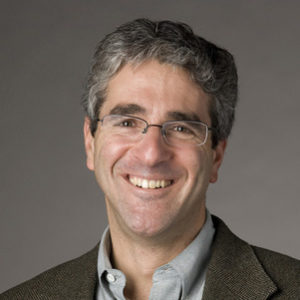
Laurence Cooper
Laurence Cooper is Professor of Political Science at Carleton College. Most of his research has addressed the question of human flourishing—what it is, how we can know what it is, what it requires from education and politics, and the risks that arise from misunderstanding it.
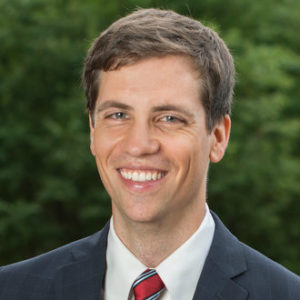
Antón Barba-Kay
Antón Barba-Kay is Associate Professor of Philosophy at The Catholic University of America, in Washington, D.C. (He is also, at the moment, Visiting Professor of Humanities at Deep Springs College, in California.) He earned his Ph.D. from the University of Chicago’s Committee on Social Thought, with a dissertation on Hegel’s Phenomenology of Spirit. The bulk of his research has concentrated on the subjects of recognition and aesthetics in nineteenth-century German philosophy. He is also writing a book about the political and philosophical implications of the digital revolution.
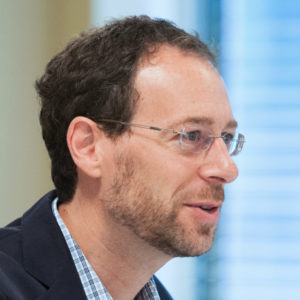
Bryan Garsten
Bryan Garsten is Professor of Political Science at Yale University. He writes on questions about political rhetoric and deliberation, the meaning of representative government, the relationship of politics and religion, and the place of emotions in political life.
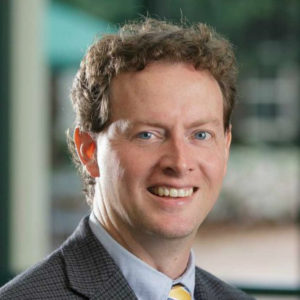
Benjamin Storey
Benjamin Storey is a senior fellow in Social, Cultural, and Constitutional Studies at the American Enterprise Institute (AEI), and co-director of AEI’s Center for the Future of the American University. He is concurrently an SNF Agora Fellow at Johns Hopkins University and a research fellow at the Civitas Institute at the University of Texas at Austin.
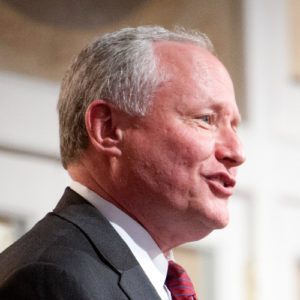
William Kristol
William Kristol is editor at large of The Weekly Standard, which, together with Fred Barnes and John Podhoretz, he founded in 1995. Mr. Kristol has served as chief of staff to the Vice President of the United States and to the Secretary of Education. Before coming to Washington in 1985, Kristol taught politics at the University of Pennsylvania and Harvard’s Kennedy School of Government.
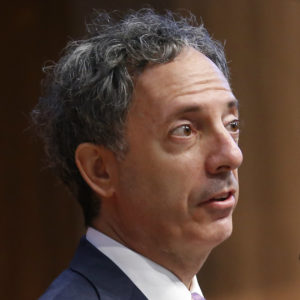
Peter Berkowitz
Peter Berkowitz is the Tad and Dianne Taube Senior Fellow at the Hoover Institution, Stanford University. He studies and writes about, among other things, constitutional government, conservatism and progressivism in America, liberal education, national security and law, and Middle East politics.
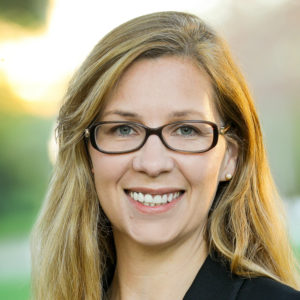
Jenna Silber Storey
Jenna Silber Storey is a senior fellow in the Social, Cultural, and Constitutional Studies department at the American Enterprise Institute (AEI), and co-director of AEI’s Center for the Future of the American University. She is concurrently an SNF Agora Fellow at Johns Hopkins University, and a research fellow at the Civitas Institute at the University of Texas at Austin. She also serves on the executive committee of the Alliance for Civics in the Academy.
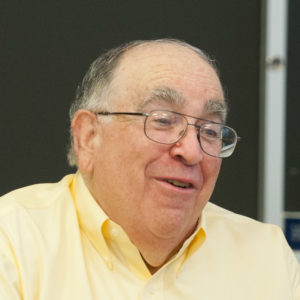
Paul Cantor
Paul Cantor was the Clifton Waller Barrett Professor of English and Comparative Literature at the University of Virginia. He has written on a wide range of subjects, including Shakespeare, Romanticism, Austrian economics, and contemporary popular culture.